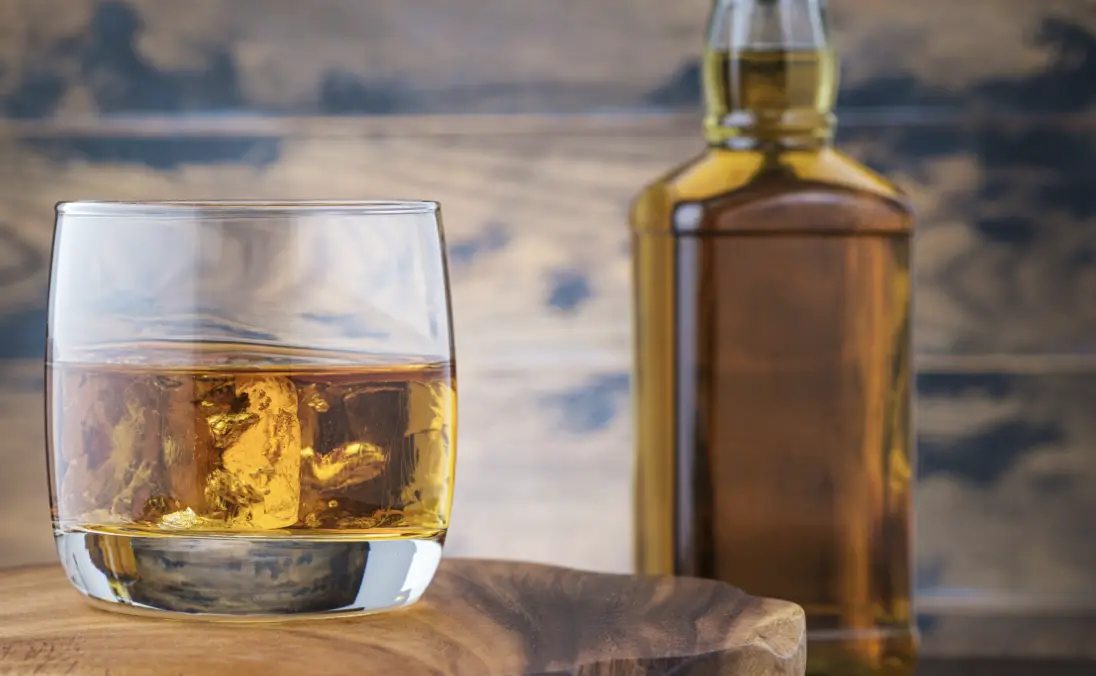Bourbon, with its rich flavors, distinct sweetness, and smooth character, has rightfully earned its place as a beloved spirit. However, there may be times when you find yourself without a bottle of bourbon on hand or want to explore alternative options. In this blog post, we will dive into the world of bourbon substitutes, exploring various spirits and ingredients that can provide similar flavor profiles and enhance your cocktail creations.
- Rye Whiskey: Rye whiskey, often considered the sibling of bourbon, can be an excellent substitute in many recipes. With a spicier and drier taste profile, rye whiskey brings a distinct character to cocktails. It complements ingredients like vermouth and bitters exceptionally well, making it a popular choice for classic cocktails like the Manhattan or Old Fashioned.
- Tennessee Whiskey: Tennessee whiskey, famously represented by brands like Jack Daniel’s, is another viable substitute for bourbon. While it shares many similarities with bourbon in terms of production methods and flavor profile, Tennessee whiskey undergoes an additional charcoal filtering process known as the Lincoln County Process. This imparts a unique smoky and slightly sweet flavor, making it an interesting alternative for bourbon enthusiasts.
- Irish Whiskey: Although Irish whiskey differs in production methods and flavor profiles from bourbon, it can serve as a worthy substitute in certain cocktail recipes. Irish whiskey tends to be smoother and lighter, with subtle fruit and honey notes. It works well in cocktails that require a milder whiskey presence or those that highlight its distinct flavor characteristics.
- Single Malt Scotch Whisky: For those who appreciate a more robust and smoky flavor, single malt Scotch whisky can be an intriguing substitute for bourbon. While Scotch whisky has distinct characteristics of its own, including notes of peat, smoke, and various regional influences, it can add complexity and depth to bourbon-based cocktails. It is particularly suitable for concoctions that call for a smoky undertone.
- Barrel-Aged Rum: Barrel-aged rum, with its rich flavors and hints of caramel and vanilla, can be a surprising substitute for bourbon in certain cocktails. Aged rum undergoes a similar maturation process in oak barrels, which imparts complexity and depth to the spirit. This makes it a viable alternative for bourbon in drinks like the Old Fashioned or Boulevardier, where the sweetness and oak influence are essential.
- Non-Alcoholic Alternatives: If you prefer non-alcoholic options, there are ingredients that can mimic some of the flavors found in bourbon. For example, using a combination of apple cider, vanilla extract, and a touch of maple syrup can create a non-alcoholic substitute that captures the essence of bourbon. Additionally, using flavored syrups or extracts, like bourbon-flavored extracts, can add depth and complexity to mocktail recipes.
Conclusion: While bourbon has its unique charm and flavor profile, exploring substitutes can be a rewarding journey that expands your cocktail repertoire and introduces you to new taste experiences. Whether it’s rye whiskey, Tennessee whiskey, Irish whiskey, single malt Scotch whisky, barrel-aged rum, or non-alcoholic alternatives, each offers its distinct character and can elevate your cocktail creations. Embrace the versatility and creativity that come with experimenting with bourbon substitutes, and savor the delights they bring to your drinking pleasure. Remember, it’s all about finding the right balance and enjoying the journey of discovery.
